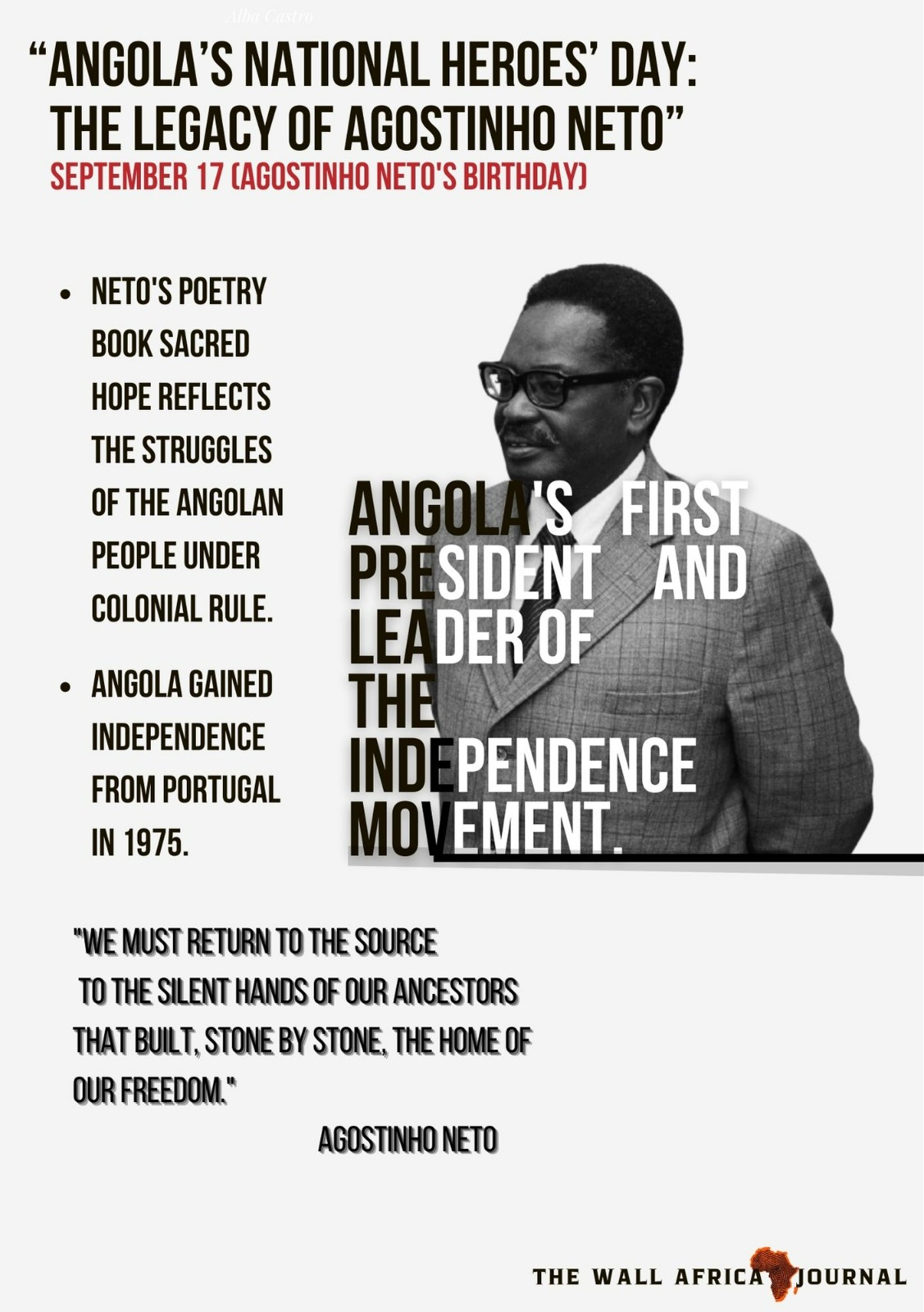On September 17, Angola will celebrate National Heroes’ Day, a significant public holiday dedicated to Agostinho Neto, the nation’s first president and a pivotal figure in the fight for independence from Portuguese rule. This day is marked by commemorative events that highlight Neto’s profound influence on Angola’s journey to freedom.
Neto’s legacy is deeply embedded in Angola’s national identity. As a leader of the liberation movement and the country’s first president, his impact resonates through Angola’s values of unity, resilience, and independence. National Heroes’ Day serves as a tribute to his enduring contributions and the ideals he championed.
A Look Back at National Heroes’ Day
National Heroes’ Day, held annually on September 17, celebrates the birth of Agostinho Neto in 1922. During the 1950s, as many European countries began to retreat from their African colonies, Portugal, under the rule of António Salazar, intensified its colonial exploitation. This fueled unrest among young Africans like Neto, who was actively opposing colonial rule.
Imprisoned for his political activism, Neto later escaped to Morocco and joined the Angolan liberation movement. By 1962, he was leading the Movimento Popular de Libertação de Angola (MPLA) in its fight against Portuguese colonial rule. Following Angola’s independence in 1975, Neto became the country’s first president, a role he held until his death in 1979. His leadership and intellectual prowess earned him recognition as a key figure in the struggle for freedom.

Legacy and Influence
National Heroes’ Day features various activities to honor Agostinho Neto’s legacy. The day includes official ceremonies, public speeches, and community gatherings. Many schools and businesses close to allow citizens to participate in the celebrations and reflect on the values of freedom and unity that Neto promoted. This day is a moment for Angolans to remember their path to independence and to celebrate the enduring principles of their nation.
Poetic Contributions
Agostinho Neto was also an accomplished poet. His writings, which often depicted the struggles of Africans under colonial oppression, were published in Portuguese and Angolan journals. His only English-published volume, “Sacred Hope,” highlights his literary contributions and his commitment to reflecting the experiences of his people.


